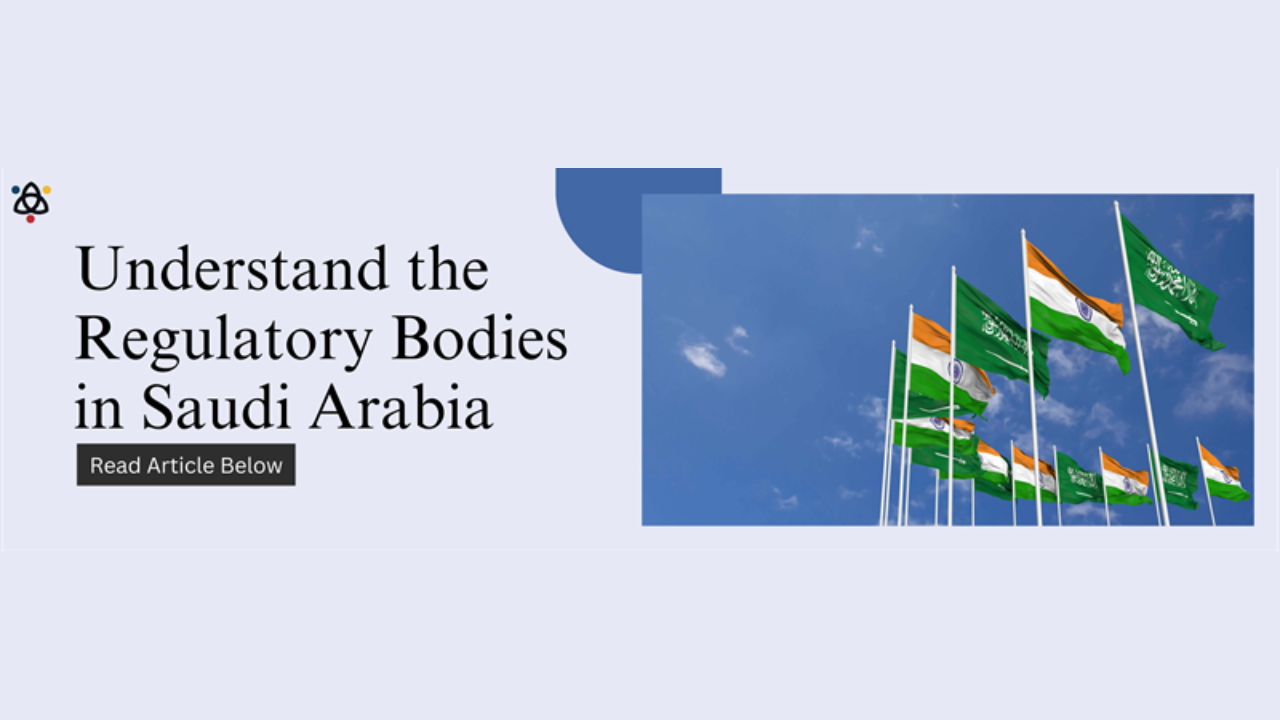



Planning to export from India to Saudi Arabia in 2025? This complete guide explains all major regulatory bodies — SASO, SFDA, ZATCA — and certification portals like SABER, G-Mark & more.
India and Saudi Arabia have a comprehensive trading relationship as Indian businesses continue to export chemicals, textiles, wearables, Electronics, Telecommunication, Food products, pharmaceutical goods, engineering goods, and consumables. But when operating in the Kingdom, one thing stands out: understanding industry bodies that manage trade, regulation, compliance, and quality control.
The go-to guide if you want to enter or grow in the Saudi market 2025
It’s your possibilities if you are aiming to step in or grow in the Saudi market in 2025.
Saudi Arabia has been working to simplify its regulatory environment in line with Vision 2030. The focus is on:
Enhancing consumer safety
Quality assurance and compliance to international standards
Reducing counterfeit and substandard imports
Supporting local manufacturing
Which is why compliance is not optional — it is a must for Indian exporters.
SASO sets technical regulations and product standards. If you're exporting electronics, electricals, textiles, or mechanical equipment, you’ll likely need:
If your exports include:
ZTCA overseas customs clearance, HS code classification, VAT compliance, and tariffs. To avoid customs delays or penalties:
GSO sets unified technical regulations across the GCC region. G-mark certification (similar to CE mark in Europe) is required for many:
Exporters should understand GSO standards if they want multi-GCC market access.
Website: https://saber.sa
Purpose: Product registration and issuance of Certificates of Conformity (PCoC & SCoC).
Used by: Manufacturers, exporters, importers, conformity assessment bodies.
Certifications:
PCoC – Product Certificate of Conformity
SCoC – Shipment Certificate of Conformity
Energy Efficiency
Water Efficiency
Cosmetics and Detergents
Textile & Leather
Website: https://www.sfda.gov.sa
Purpose: Registration and approval of:
Food & Beverages
Cosmetics
Medical Devices
Pharmaceuticals
Relevant Portals:
GHAD System: For food, cosmetic & supplement registration.
MDMA/UDI: For medical device registration and listing.
Website: https://www.label.saber.sa
Purpose: Issuance of Water Efficiency Label (WEL) and Energy Efficiency Labels.
Applies to: Electrical appliances, water fixtures, etc.
Website: https://www.gso.org.sa
Purpose: Unified GCC standards (for Gulf countries) and G-Mark certification.
G-Mark: Mandatory for children’s toys and low voltage electrical equipment.
Website: https://mci.gov.sa
Purpose: Commercial registration, product recalls, anti-counterfeit measures.
Note: Plays a role in verifying certificates and monitoring market.
Website: https://www.fasah.sa
Purpose: Integrated import-export documentation and shipment clearance.
Connected With: SABER, SFDA, and other compliance systems.
Website: https://necr.saso.gov.sa
Purpose: For calibration laboratories and equipment registration under SASO.
Website: https://iecee.saso.gov.sa
Purpose: Issuance of national IECEE certificates for regulated electrical/electronic products.
Mandatory for: Products like mobile phones, chargers, batteries, home appliances, etc.
Note: Required before uploading such products to SABER.
Website: https://www.fasah.sa
Purpose: Electronic clearance of import/export shipments.
Integrated with: SABER, SFDA, and other certification bodies.
Website: Part of the SFDA Portal
Purpose: For registration of entities involved in the import, distribution, or manufacture of medical devices in KSA.
Mandatory before: Registering devices on the MDMA portal.
Website: Accessed via SLS or SABER
Purpose: Water fixture products (e.g., faucets, showers) must be registered and tested for water efficiency.
Website: https://taqyees.sa
Purpose: Metrology services for calibration labs and measurement equipment.
Managed by: SASO
Website: https://gmportal.gso.org.sa
Purpose: For obtaining Gulf Conformity Mark (G-Mark).
Used in: GCC-wide market (including Saudi Arabia).
Website: https://www.sama.gov.sa
Purpose: Cybersecurity compliance and certifications in financial & insurance sectors.
Website: https://www.balady.gov.sa
Purpose: Licensing of businesses (such as food outlets, salons, factories) that may need hygiene or health compliance.
Website: https://marn.sa
Purpose: Licensing and approval for business operations, especially for tech/startups.
For seamless market access in Saudi Arabia, one must:
✔ Enlist your items on SABER or other appropriate systems
✔ Secure requisite PKI conformity certifications SASO, SFDA, GSO
✔ Use Arabic labelling where applicable
✔ Engage a certified Notified Body or Conformity Assessment body
✔ Observe Saudi Arabia's technical regulations
Be responsive to modifications in Saudi Arabia’s technical regulations.
Final Thoughts
While the Saudi market holds great promise for Indian exporters, there are many regulations in place. Having a grasp on how SASO and SFDA operate is crucial in order to avoid schizophrenia when dealing with red tape. If long-term opportunities in the GCC matter to you, adhering to regulations is the strongest business edge you could ever have.
At Sanyog Conformity Solutions, we help Indian exporters ensure hassle-free entry into GCC markets like Saudi Arabia. From SASO and SFDA clearances to SABER certification and more — we handle the compliance, so you can concentrate on expanding your business.
📞 Let’s Talk: +91 78970 01049
ⓒCopyright 2025 Sanyog Conformity . All rights reserved